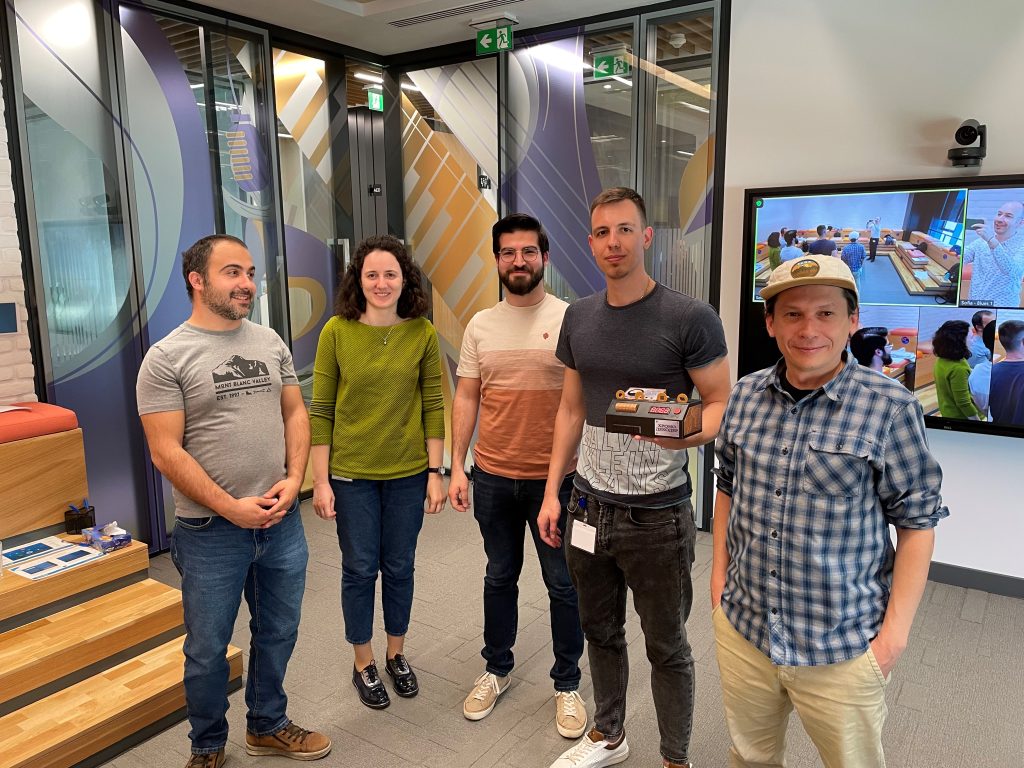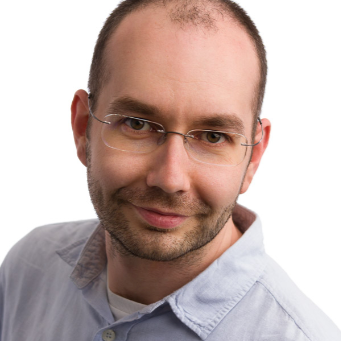
Our Meet the Hiring Manager series lets you know the people who grow teams at VMware. You’ll learn about our hiring managers’ career paths and what they look for in candidates during the interview process. This week we’d like you to meet Hristo Kyurkchiev, Senior Manager, Research and Development.
What’s unique about the team you’re leading?
I consider a crucial aspect of our team’s uniqueness to be diversity. There are people from different backgrounds, skillset and generations. This creates a culture of sharing and learning, which we practice through regular knowledge transfer sessions. In these sessions, we share knowledge accumulated from previous experience, acquired on the job, or through VMware’s Take 1 program for degrees, training, and conferences.
Trust is another asset of our team – trust in ourselves and each other. Sometimes you need a push or someone to just pitch your ideas to. And for this, you need to feel that you are in a safe environment built on trust. Recently, we faced a challenge with the data crunching millions of events in a batch processing job. It was straining the AWS Glue service beyond its limits and constantly resulted in out-of-memory issues on the Spark nodes leading to a failed job. We taped in our internal knowledge database and, through it, were able to redesign and optimize some of the SQL queries so that the job could finally pass. After several brainstorming sessions with the software engineers, data engineers, and data scientists and some trials and errors, we further optimized the queries. The job is currently running for less than 1 hour. This was all done without stress through the team’s open communication channels and mainly through self-organization.
What is your team’s tech stack?
Java for development, sometimes mixed with Python, Kubernetes, Terraform for infrastructure management, and AWS cloud services (Athena, Glue, S3, SageMaker, etc.). Experimentation is part of our daily activities, and in case a new technology fits our use case well, we are happy to adopt it.
If you could use one to three words to describe your team, what would they be?
Analytical communication, agility.
Share some interesting details about your colleagues?
We are a young team – barely 2 years old, but we have participated in numerous forums, to name a few:
- Women who code
- ISTA
- Dev-challenge accepted
- Meetups
- Dev.bg Java Talks
- VMware’s internal hackathons
Tell us about your career journey to date?

My first job was as a freelance website developer and support using PHP and SQL when I was 17. My only stray from the straight and narrow software engineering path was when I did a summer internship as a recruiter at an HR agency between my second and third year at university.
I continueд with different programming languages – PHP, Objective C, and Java. After several years of software engineering work and being a part of a small startup at the time, I moved to management roles, where I ventured into software architecture as well as customer engagement and success. During the past 7 years, I have been primarily focused on building, growing, and managing engineering teams to drive software engineering best practices and product excellence.
I am a home automation enthusiast and am just waiting to finish my EMBA program next May so I can spend my weekends figuring out how to relieve myself of the chore of watering the plants.
How is VMware different from any other tech company you have previously worked for?
VMware creates software for software engineers and IT. You feel right at home as you are used to the tooling and are immediately drawn into how it is built, a little bit like unraveling how the magician has done the trick you wondered about. Another aspect is the care and attention paid to the well-being of the employees – company-wide days off, extra time off to spend with one’s family, well-being allowances, and the list goes on. Of course, this is popular in the IT sphere, but still, you see, it is being done with actual concern about the people.
What has been the biggest lesson you have learned as you moved upwards in your career?
If I have to pick one thing, it is that people are the most important asset of a company, and I am happy that I was able to gather good people in my team here at VMware, who I believe feel the same.
If someone reading this was coming to interview with you tomorrow, what interview tips would you give them?
Don’t stress about it, as it is just a conversation – be yourself and ask me questions. The interview is a two-way communication, and it is essential that both sides understand each other and the direction they want to continue in. If we start our relationship on false pretenses, it will show later in the long run. The same is true if we form our perceptions on assumptions.
Be prepared – while you may think, “That goes without saying,” it is not so much for our sake as it is for yours. Let me explain. If you are prepared, you will be more relaxed and present yourself better, avoiding unnecessary stress. Even if you are stressed, everyone on the interviewing team is experienced enough to understand this and help you.
Last but not least, it is not about what you know but how you think. Don’t be afraid to say, “I don’t know,” or “I don’t have experience with this.” Ask questions when you are not sure you understand correctly what the other person is asking.
If you can see yourself working in a team like this, check out the open positions:
- Information Security Analyst – Managed Detection and Response, VMware Carbon Black – Opportunity for Working Remotely
- C++ Software Engineer, VMware Carbon Black
- Senior Front End Engineer with React, VMware Carbon Black
- DevOps Engineer, VMware Carbon Black





